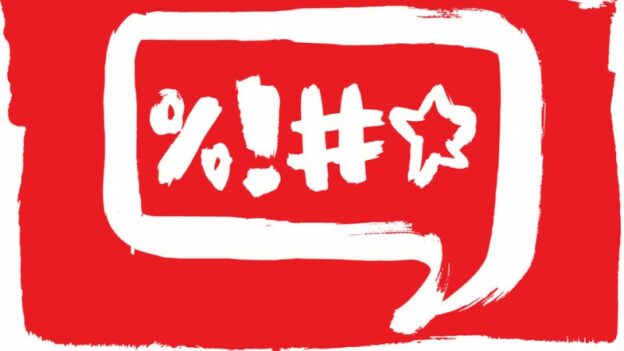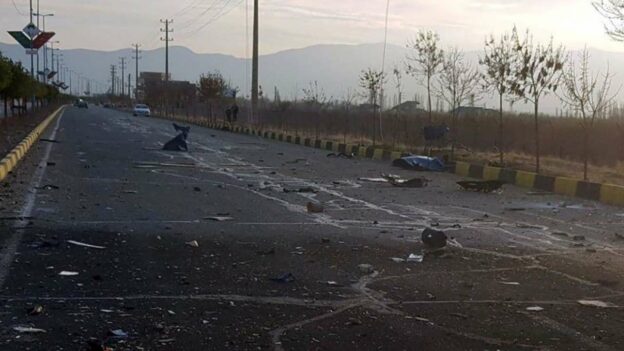I have defended Congresswoman Alexandria Ocasio-Cortez on a number of occasions in several public venues. But I was chagrined by her reaction to the recent Hamas/Israel war, and express why here.


I have defended Congresswoman Alexandria Ocasio-Cortez on a number of occasions in several public venues. But I was chagrined by her reaction to the recent Hamas/Israel war, and express why here.

Two people dear to me — a talmid from a former lifetime and a respected colleague in my current one — forwarded me links to an outrageous set of comments attributed to Texas State Representative Terry Meza, explaining her proposed bill to change parts of her state’s code about the use of force in self-defense.
Ms. Meza’s bill was characterized as a repeal of Texas’s “castle doctrine,” a catch-all phrase for an assortment of laws in various states offering a person the right to use deadly force on an intruder.
She was quoted as justifying her effort by contending that “Thieves only carry weapons for self-protection and to provide the householder an incentive to cooperate,” that “in most instances the thief needs the money more than the homeowner does” and that “on balance, the transfer of property is likely to lead to a more equitable distribution of wealth.”
The outrageousness of that report is equaled only by… well, its falsity.
It turns out that the bill at issue simply added a clause requiring a person not on his own property and not personally threatened to retreat rather than shoot to kill someone engaged in a robbery.
And the quotes? They were fabrications, the work of a satirical website.
Neither of the people who sent me the untrue item — which appeared widely on social media — is gullible. One is a doctor, the other a lawyer.
But their assumption of the item’s veracity highlighted something unsettling, even dangerous, that has been steadily increasing and particularly apparent in recent years: the proliferation of “fake news” — and the challenge of distinguishing fiction from fact.
With the presidential election now blessedly in the rear-view mirror, the subject of misleading reportage and opinion writing can be addressed, one hopes, dispassionately. And so, for what it’s worth, I’d like to share some advice about how to best ferret out facts from falsehoods and formulate informed opinions.
The only college I attended was Ner Israel Rabbinical College, but my professional life over the past quarter century-plus has included closely monitoring news. And I’ve confirmed — stop the presses! — that journalists, like all people, have biases. The best among them work to suppress their prejudices, but the preconceptions are often evident all the same, if not on the lines, then between them.
Ditto with news organizations, and kal vachomer with social media. Which means that, in a way, all news is “fake” — if not necessarily like the blatantly misleading example above, then at least in the sense of… slanted.
So what’s a news consumer to do? I suggest something simple, if puzzlingly seldom done: Hear out disparate claims and do independent research.
That means consulting not only Fox News and the Daily Caller, but the New York Times and CNN; listening not only to NPR but to Rush and Sean and even Rudy. And then — most important — employing critical and objective thinking (and tools like Snopes and FactCheck).
People who proudly proclaim that they trust only this or that news source are proudly proclaiming that they don’t really care about truth, only about keeping the bubbles they inhabit intact. The only way to establish facts and formulate educated opinions is to hear different voices. Doing otherwise is like a judge hearing out only one litigant and then rendering a decision.
Sometimes due diligence and hearing all views will yield confirmation of one’s own original gut feelings. Other times, though, an honest person will find his own preconceptions to have been successfully challenged. And so, it’s important here to remember, as it is in life in general, that admitting a mistake is simply declaring that one is smarter than he was earlier.
Objective evaluation of disparate sources can still yield different conclusions for different people. There can be, and often are, entirely legitimate differences of informed opinion. But opinions need to be based on fact, not partisan propaganda or someone else’s biases.
As I was writing this, yet a third person dear to me forwarded a headline from a “frum” medium. It read: “JOE’S MATH: Biden Talks Of 300 Million Vaccines For 200 Americans.” At one point in a recent address, Mr. Biden said “300 Americans” and then corrected himself and said “300 million Americans.” The video on the “news” medium was not only doctored to omit that real-time correction but clumsily edited to make Mr. Biden seem addled.
How many viewers of the fake video, I wonder, cared to consult the original?
© 2021 Ami Magazine

Since assuming office, President Biden has nominated many people for cabinet positions and other high government posts. Many of them are members of the tribe, and all of them are highly qualified for their proposed roles.
Well, with one possible exception, the subject of my Ami column of last week, which you can read here.



There’s probably no great rush among Iranian science majors to choose careers in the country’s nuclear research program. For good reason. The positions — and their holders — have often proven short-lived.
Over the past decade, at least five major Iranian nuclear scientists were assassinated, the most recent one, Mohsen Fakhrizadeh — thought to be the mastermind behind Iran’s nuclear program — just last month.
Whether Mr. Fakhrizadeh was killed by a hidden, elite sharpshooter squad or, as Iranian security officials have said, remotely, by satellite-controlled gunnery equipped with facial recognition software, the killing was clearly sophisticated, well planned and well executed.
Which, of course, made Israel a prime suspect. The motive was certainly there.
Because JCPOA, the “Joint Comprehensive Plan of Action” a.k.a.“the Iran Deal,” itself lies gravely wounded — the U.S. pulled out of it in 2018, and Iran has subsequently violated some of the agreement’s major restrictions, including the amount of enriched uranium it is allowed to stockpile and the purity to which it is allowed to enrich the element.
And so, Israel, the “little satan” Iranian leaders have repeatedly threatened, would understandably like to see Iran’s nuclear development program, well… set back. Fewer nuclear experts, fewer capabilities to create nuclear weapons.
But whoever was ultimately behind the scientists’ untimely ends, the labor-intensive setting up and execution of the projects “on the ground” was overwhelmingly likely to have been the work of Iranians.
Could they be mercenaries hired by a power like Israel or the U.S., or Iranians sympathetic to Israel? Anything is possible. But it’s also possible that the people who made the hits happen are operatives of one of two Iranian anti-government groups.
Those of us who qualify for senior citizen discounts on buses and trains likely remember when — yes, youngsters, it is fact — Iran and Israel were close allies. Iranian-Israeli military links existed, weapons projects were undertaken in tandem and El Al operated direct flights between Tel Aviv and Tehran.
That was back in the days of the Shah, Mohammad Reza Pahlavi, who ruled Iran from 1941 until 1979, when the Iranian Revolution brought Islamist Ayatollah Ruhollah Khomeini back from exile and the mullahcracy began.
The Shah fled to Egypt, where he died the next year. At the time, his son and heir to the throne had the throne persisted, Reza Pahlavi, was a trainee fighter pilot in Texas. Today, 60 years old and living in Maryland, he still aspires to return to Iran — and to return Iran to its happier past.
Reza Pahlavi leads a body called the National Council of Iran for Free Elections, an umbrella group of exiled opposition figures seeking to overthrow Iran’s current government. The would-be Iranian leader claims to have clandestine supporters within the Iranian military, including the Revolutionary Guard.
Similarly seeking to replace the mullahs is the National Council of Resistance of Iran, which aims to establish a pluralistic, multi-party and democratic system in Iran.
Sympathizers in Iran of either of those groups could have been the actual assassins of the late Iranian nuclear scientists. What is undeniable, though, is that Iranian resistance movements exist. And one or more of them may be working together with… whatever outside power is trying to keep Iran from joining the international nuclear weapons club.
That fact should give pause to President-elect Biden, who has expressed his desire for the U.S. to rejoin the Iran Deal. To be sure, there are rational reasons to try to do that, especially if the restrictions on Iran are tightened, something Mr. Biden has pledged to pursue. The deal, after all, did prevent what Iran is openly up to now.
But there’s no hurry. The U.S. sanctions currently in place continue to take a devastating toll on Iran’s economy; the country’s inflation rate is currently running around 40 percent. And the brazen assassinations — along with the 2018 Israeli operation that “borrowed” important documents outlining Iran’s nuclear designs, and a series of explosions over recent months that have destroyed a centrifuge factory, a secretive military installation and a missile facility — have surely made Iran’s leaders keenly aware that their country is rather vulnerable to formidable adversaries.
So, the incoming Biden administration would be wisest to let the pressure on Iran continue to build — to enforce the sanctions in place, to encourage the Iranian movements seeking to overthrow the Islamic Republic of Iran, and to continue to strengthen whatever entity it suspects has been undermining Iran’s nuclear ambitions.
© 2020 Ami Magazine

An article I wrote for Religion News Service about what New York’s draconian Covid-19 rules affecting Orthodox communities evidence about the rules’ crafters can be read here.

I have no beef with anyone who wishes to take issue with anything I’ve written. But I do object to the publication of something that blatantly and irresponsibly misrepresents what I have written. Like this recent piece in the Forward, ostensibly responding to an earlier one I wrote in the same medium.
If you read my essay, you will see that nowhere did I argue or insinuate, as Mr. Nosanchuk claims, that that “only Haredi Jewish leaders can speak for our city’s Jewish community.”
Nor does associating me with “violent attacks against journalists” have any respect for truth. In fact, it insults it. I have publicly and repeatedly condemned (in print and on-air) all such behavior, and didn’t reference it at all in my Forward piece, since it was irrelevant to its thesis.
And if Mr. Nosanchuk wishes to attribute to me the claim that Orthodox “practice of Judaism requires an exemption from public-health restrictions,” he really should be required to show where I have ever written such a thing. I have not. What I did write was that New York Governor Cuomo’s recent edicts were illogical and unfair — to any and all houses of worship.
I, further, never insinuated anything remotely like the contention that people should “risk their health or the health of their loved ones by attending a large indoor religious gathering.” Nor would I ever do so.
And I nowhere suggested that non-Orthodox rabbis “have no right to opine on the issue because they interpret Jewish law differently” than I do. I simply noted that non-Orthodox Jews are not hampered as much as Orthodox ones are by Mr. Cuomo’s draconian rules — and that representatives of the former should not call the latter “blasphemous” for standing up for their rights as Americans. The ugliness and falsehood of that accusation was what my article was about – and something Mr. Nosanchuk chose to utterly ignore.
As to his accusation that I align myself “with a small minority within the Haredi community that has flouted public-health restrictions and resorted to violence against fellow Jews who disagree with them.” That is beyond untruth; it is perilously close to libel. He maliciously created it out of whole cloth.
As he did his statement that I have resorted to “claims of antisemitism” against, presumably, the governor. Never have I ever made such a claim, not in my essay, not in any other writings and not in private conversation.
Finally, I didn’t “try” to “spin” the NYJA’s words as name-calling. Its words were name calling, at least if one considers “blasphemous” an insult. I really think most people would.

The Forward ran an opinion piece I wrote about abortion. It can be read here.
For the past month and a bit, my weekly columns have been appearing in Ami Magazine. My agreement with the periodical allows me to share links to the pieces on its website, but not to share them in their entirety in other ways.
So I’ll be posting links to the pieces, and their first sentences, in the future here, in addition to articles that may have been published elsewhere.
Recent offerings are at https://www.amimagazine.org/2020/07/29/cut-the-curls-youre-out-of-the-band/ and https://www.amimagazine.org/2020/08/05/dont-kick-the-donkey-2/